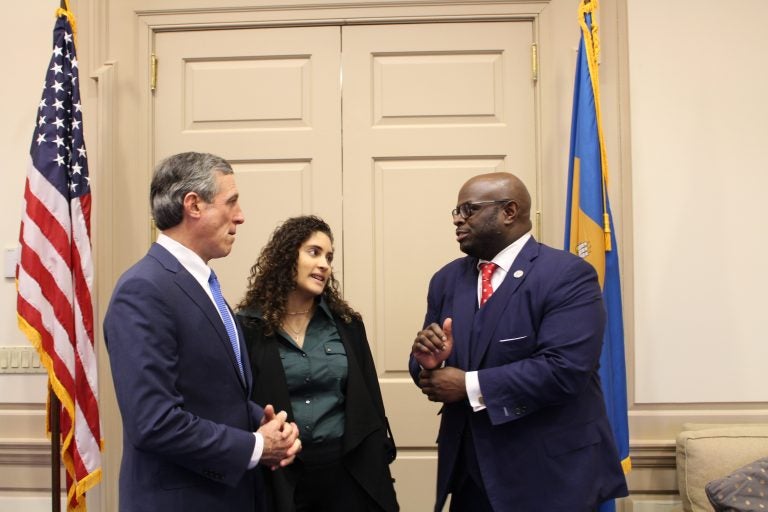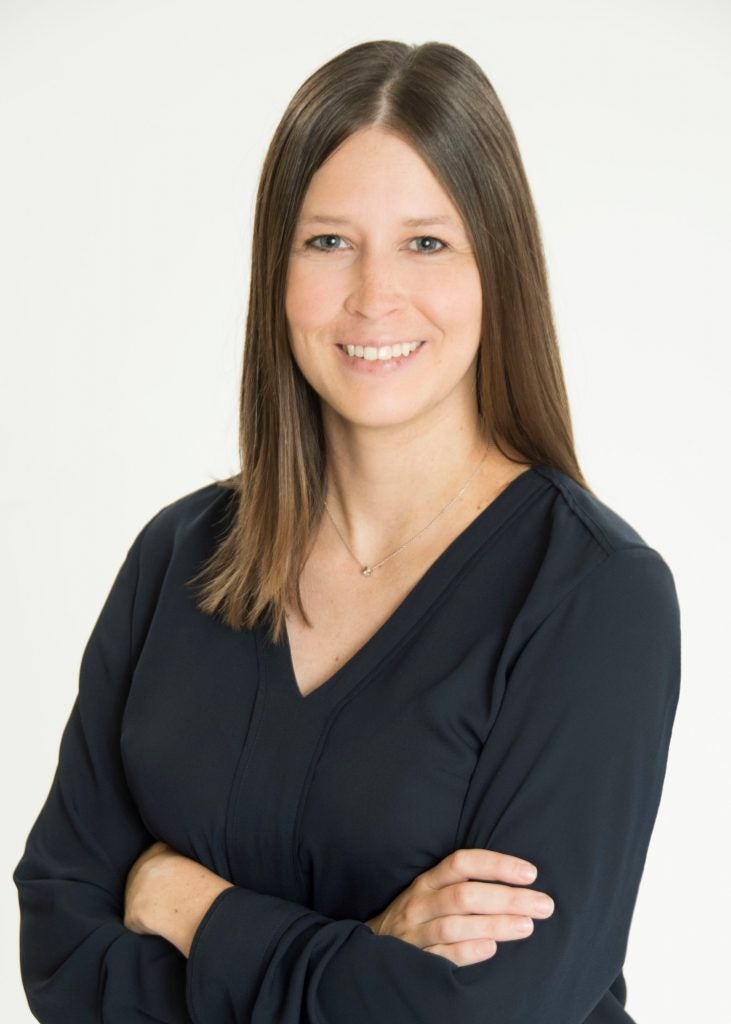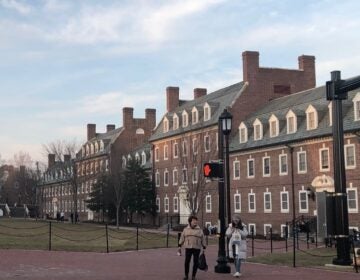Delaware initiative would offer financial support for foster kids who want to go to college
Foster kids find themselves at a crossroads when they turn 18. The Carney administration initiative aims to encourage more to continue their education.
Listen 1:47
Former foster care child Mayda Berrios joined Gov. John Carney (left) and Tony Allen, Delaware State University president, after the State of the State speech. (State of Delaware)
Delaware has about 600 kids in foster care. When they turn 18, they find themselves at a crossroads.
They need a place to live, and have to decide whether to find a job, continue their education, or both.
Delaware provides housing and other resources to smooth their transition. Now the Carney administration wants to do more: ensure they can go to college completely free of cost.
Gov. John Carney announced during last month’s State of the State that he is pursuing legislation ”to waive tuition and fees” at the University of Delaware, Delaware State University and Delaware Technical Community College “for students who age out of foster care.”
There are currently 10 former foster kids at the three colleges. Officials hope the program will encourage more to enroll in post-secondary education.

Meredith Seitz, policy adviser at Delaware’s Department of Services for Children, Youth and their Families, says former foster care kids who go to college do get financial aid and other assistance, but that Carney’s plan would have the state’s three taxpayer-supported schools cover all other costs.
That includes tuition, room, board and books. Seitz says lawmakers and the schools are supportive.
“The point is to take a weight off their shoulders when they are in high school and thinking about what the possibilities are,’’ Seitz said. “To be one of these kids, and to know that you could pick one of these three really good institutions, and as long as you get in, you don’t have to worry about taking on a loan and where you are going to live and things like that.”
Mayda Berrios, who lived in foster care homes for most of high school, was in the audience at the House chamber when Carney announced the initiative.
Berrios is now a sophomore at Delaware State and counsels kids in foster care. Though her college costs are covered by scholarships and grants, she says the initiative could help many kids get ahead in life.
“It’ll definitely help some of the future kids who want to go to college,’’ Berrios said. “I spoke to some myself … they’re like, I don’t want to go to college because I don’t have the money for it. I can barely afford X, Y and Z.”
Berrios added that the program will “alleviate the stress of getting a denial letter for a scholarship or trying to just figure out ‘where am I going to get this money from to pay for books?’”
Sophia Cywinski, the state’s independent living program coordinator, agreed.
“The huge thing is that it’s going to remove the financial burden,’’ Cywinski said.
The idea of going to college for any student “is really overwhelming,’’ she added. “But for youth that are in foster care, every single piece of that process takes so much more effort, because they don’t have the natural support of a parent to help them through the application process, and looking at schools, and figuring out ‘how do I do this and how do I do that?’”
WHYY is your source for fact-based, in-depth journalism and information. As a nonprofit organization, we rely on financial support from readers like you. Please give today.




